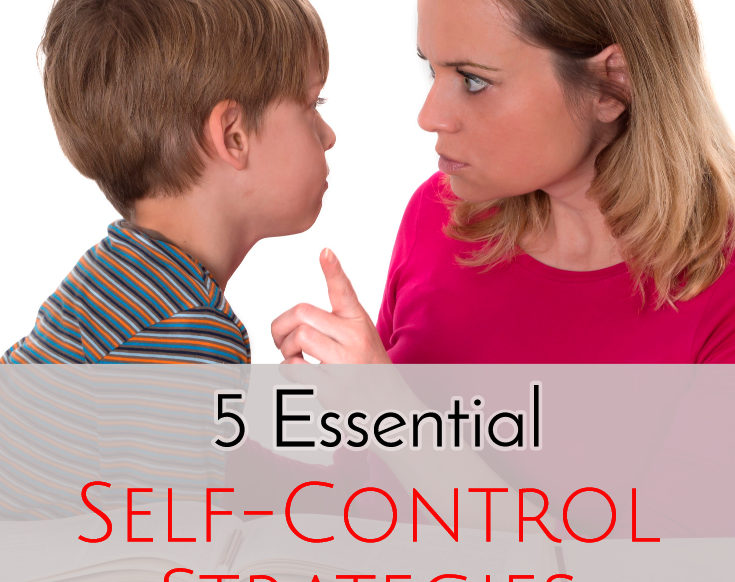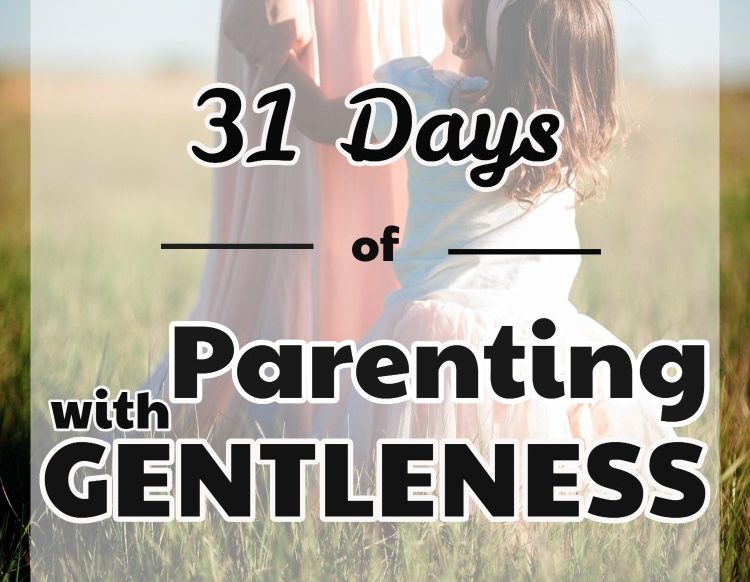6 Mistakes Christian Parents Often Make
“We're done, mom!” Three children stand beaming at me from their version of a clean kitchen.
One glance around the room tells me they are far from done.
Now I have a choice. Do I berate them for being lazy and doing a sloppy job? Or do I calmly and kindly say, “Well, I can tell you all have been working hard, but mommy's going to show you a few things that can make the kitchen even cleaner, okay? First, you want to make sure you squeeze the water out of the cloth really hard so there won't be water dripping all over the table when you wipe it…”
I think we would all agree that it is only fair to remember that little children must be taught how to do things before they should be expected to do them the right way.
And yet, so often, we as parents forget that children are learning so many new things every day, and we could stand to cut them a little more slack. (Read: The Thing Most Parents Forget About Their Kids)
I have noticed some additional deficiencies in Christian parenting skills that most of us could stand to improve (myself included for sure!)

1. Laziness
We've all done it. We call our child and they don't come, so we call them again. They still don't come. We call a couple more times, more loudly each time, until finally they hear, “GET IN HERE, NOW!!!!”
This is often a result of our own laziness as parents. Why should our children always hold the responsibility of stopping what they're doing to come to us? Why can't we show the same respect for their time and their interests that we would show to anyone else? Would we call our spouse from across the house, expecting them to drop what they're doing to come to us immediately? Would we like it if our spouse did that to us, or would we appreciate their consideration that we might be in the middle of something?
Instead of calling for our children from across the house, expecting them to immediately stop what they're doing and come running, we can stop what we're doing and go talk to them.
This is not to say that there won't be a time and a place to call our children, just like there are times we will need to call our spouse from across the house. But we can do it in a way that treats them the way we want to be treated. Our children are not our servants.
We can have a respectful conversation when we do need to call them. “Can you come here please? I need your help with something.”
When we treat our children respectfully, showing them that their time is just as valuable as ours, they'll be less likely to buck against us when we do ask them to come help us with something.
Other ways that parents can be lazy:
-Not taking the time to proactively teach our children, then getting frustrated when we feel we are constantly having to correct them
-Not taking the time to supervise children properly, then getting irritated when they make a mess or neglect their responsibilites
-Punishing children in hopes of getting a desired result rather than connecting with them and motivating them
2. Lack of Thoughtfulness
Ephesians 6 tells children to obey their parents, but Ephesians 6 does not instruct parents to bark orders at their children.
In fact, the admonition given to parents (fathers, specifially) is to not provoke them, and to nurture them and teach them the ways of the Lord.
What tone of voice do you use when speaking to your children? Would you speak to another adult that way?
Does “Be ye kind one to another” apply only to other adults?
Yes, we need to teach our children to obey. But we must remember that we have other jobs besides teaching – nurturing, comforting, helping. When too much focus is placed upon obedience, it's easy for things to get out of balance.
3. Lack of clarity
Many times as parents we expect our children to know exactly what we mean when we haven't really taught them how to do something properly.
This piggybacks on point number one, where our own laziness causes unnecessary problems in our relationship with our kids.
We tell them to clean their room, but haven't ever worked side by side with them to show them exactly what “clean your room” means. Kids are kids. They need instruction and guidance.
4. Lack of Follow-through – Ouch! This is the area where I have the hardest time.
I tell the kids to clean their room and later see them playing. “Did you clean your room?” I ask. (Of course they answer yes!) At bedtime, when I see that their room is not thoroughly clean, I get irritated because their room is a mess, but I don't want them to stay up any later to clean it. I should have gone to check it immediately when they were finished.
When we give our kids instructions, there are 2 sides to the responsibility. The child has a responsibility to report to complete what they've been asked to do, and the parent has the responsibility to follow-through with making sure the job is done and done correctly.
5. Forgetting that kids are kids
Sometimes we parents just plain expect too much out of kids. It is much harder to be a kid than we realize sometimes.
On the flip side, kids are pretty smart too!
We need wisdom to find that sweet spot between expecting too much or expecting too little from them.
6. Praise for a job well done
I don't know about you, but I love it when someone acknowledges my hard work, whether it was something I was supposed to do or not.
It's so nice when people notice and appreciate your hard work, and it provides motivation and energy.
Our children have emotions just like us, and we can provide so much encouragement to do right just by giving them some positive reinforcement.
It is my desire that I would become more and more acquainted with God's unconditional love for me. And as I do, I pray that his graciousness and gentleness would spill over onto my children.
The Unforeseen Reason Your Child is Rebellious
THE STORY
“What are you doing?” I asked my son.
I saw the door of my husband's shed hanging open and smelled spray paint fumes, so I was little nervous to find out what was going on.
“Were you using Daddy's spray paint?”
“Yes,” he replied.
“Are you allowed in Daddy's shed?”
“No,” he answered as he lowered his eyes.
“Do you think you should be using spray paint without permission?”
“No.”
“Well, you need to go sit on the porch. You may not play right now if you're going to be using Daddy's things without permission.”
We both sat on the porch, just talking about whatever happened to strike my son's fancy at the moment. After I while I told him he could go back and play, reminding him to stay out of daddy's shed.
He enjoyed the rest of the afternoon playing and he stayed out of daddy's shed.
No drama. Just a mom remembering that her kid is…well…a curious kid and a son listening to his mother's reminder that he needs to follow instructions.
THE OTHER SIDE OF THE STORY
BUT. Let me be totally honest here, even though it's going to make me look really bad.
There was a time when my children were younger that I would have handled that situation MUCH differently.
Here's how it could have gone:
“What do you think you are doing, young man?” I asked with my hands on my hips and my eyes glaring a hole straight through my son's body. “Were you messing with spray paint? You were! Son, you know better than that! You know good and well you are not allowed in daddy's shed. And furthermore, if you WERE allowed in Daddy's shed, you certainly wouldn't be allowed to be using spray paint. Why are you messing with stuff you know good and well you shouldn't be touching? You are done. D-O-N-E, done! Get in the house. If you can't play out here the way you're supposed to you're not going to play out here at all.”
After I caught my breath after that tirade, I would have seen him into the house, a few more words of rebuke leaving my mouth as we went.
And here's the sad thing. I would have thought I was doing what I needed to do to help my son turn out right.
“He's so rebellious!” I would have thought to myself. “He KNOWS not to go in the shed and he did it anyway! He's GOT to learn to do right! I hate having to be so strict with him, but he's got to learn!”
Now, don't get me wrong. Sometimes we do have to lay down the law and not budge in our stance. I'm not saying that we should let our kids get away with disobedience and there not be any consequences.
But I don't think that being so hard nosed about every little incident is the right way to lead our children.

CREATING REBELLION
I think we can actually create rebellion in our children that wasn't there to begin with. We tell them by our reactions to their childishness that they are rebellious. If we make everything into head-butting battle, they're going to butt heads back!
I wrote about this concept in What I'm Learning about Child Training from an Olive Tree.
Here's what I wrote:
“Extensive pruning…can actually do more harm than good to a young olive tree. One olive gardening manual warns that “A determination to form the perfect shape by excessive pruning will weaken the young tree and stunt its growth for a number of years.” For this reason, olive growers do not do much pruning at all for the first 4 or 5 years of a tree's life. The only shoots that should be eliminated are those that compromise the definitive shape of the plant.
Olive tree lesson: Nitpicking at my children is only going to discourage them and make them feel like it's pointless to even try. The only thing I should be removing from my children's lives are those things that are actually going to point them in the wrong direction.
Do you discipline harshly for childish things like forgetting to put clothes in the hamper or make their bed? Yes, they need to do those things out of obedience, but sometimes children genuinely forget these things and aren't being purposely rebellious. Gentle reminders will do more good than giving them the 3rd degree for every minor offense.”
I understand why a parent will bring the hand of judgment down swiftly. We want our kids to turn out right, so we make sure nothing slips by! We see so many parents looking the other way when their children disobey and we don't want to be like that, so we are dead-set to lay down the law every single time they commit an offense.
But that mentality leaves absolutely no room for grace. They are imperfect human beings (just like their parents, by the way.) They forget things they've been told. Their childish curiosity overrides their sense of good judgment. And yes, sometimes they even consciously choose to sin. But I'm not so sure that a conscious choice to sin is the same as rebellion. How do your children respond to a gentle correction? If they put their hands on their hips, look you straight in the eye, and defiantly say, “No. I'm not doing it,” then yes, that is rebellion. But if they realize the error of their ways and are repentant about whatever it is they did, then committing the offense doesn't actually mean they're rebellious. It just means they're a sinner.
THE GOAL
Don't set up your parenting goal to be perfect behavior out of your child. Perfection is impossible, and trying to attain it will only frustrate both you and your child.
Instead your goal should be to see a tender heart in your child, willing to listen to correction and right themselves when they've gone astray. You want your child to be able to sit down with you and make a plan to overcome their character flaws. Do you think they will be likely to have a tender heart and be willing to work with you when you always seem to be working against them?
Imagine you've made an honest mistake at work. If the boss confronts you about it with his hands on his hips, glaring a hole through you, does it really make you want to listen to correction with a tender heart? No, it makes you want to do the exact opposite of what he says. But if he comes to you and calmly says, “Hey, I noticed you forgot to ____. Do you think we could talk about figuring out a better system so you don't forget in the future?” then you are much more likely not to get defensive and butt heads with his correction.
Swift, harsh judgment created an attitude of rebellion, while gentleness and understanding produced the desired result.
Likewise with our children, swift and harsh judgment will create an attitude of rebellion, while gentleness and understanding will produce the desired result (a tender heart, willing to heed correction.)
Again, I want to be careful here not to seem like I'm advocating NO discipline. There surely is a time and a place for it. But let's be careful not to create rebellious children by expecting perfection.
In closing, these are the two ideas I hope you'll take away from this article:
1. Change your goal from perfect behavior out of your children to instead an attitude of willingness to heed instruction and correction.
2. Don't be so swift to bring down harsh judgment for their mistakes. Your demeanor can make the difference between their willingness to work with you or to butt heads against you.
This post is part of the Parenting with Gentleness series.
5 Essential Self-Control Strategies for Parents
You will never be a gentle parent if you have not learned the discipline of self-control. All parents are going to feel angry from time to time. It is not a sin to feel angry. But what you do with that anger is the difference between being a Godly parent or whether you are parenting in the flesh.
Since you already know that the temptation to react improperly (yell, huff and puff, give unreasonable consequences simply because you feel angry) will arise from time to time, you would be wise to proactively put some strategies in place to help you keep your temper under control.
(Romans 13:14 “But put ye on the Lord Jesus Christ, and make not provision for the flesh, to fulfil the lusts thereof.”)
I'm listing 5 ideas for you here, and we'll also explore some of these a little more in-depth in the next few days of the Parenting with Gentleness series.
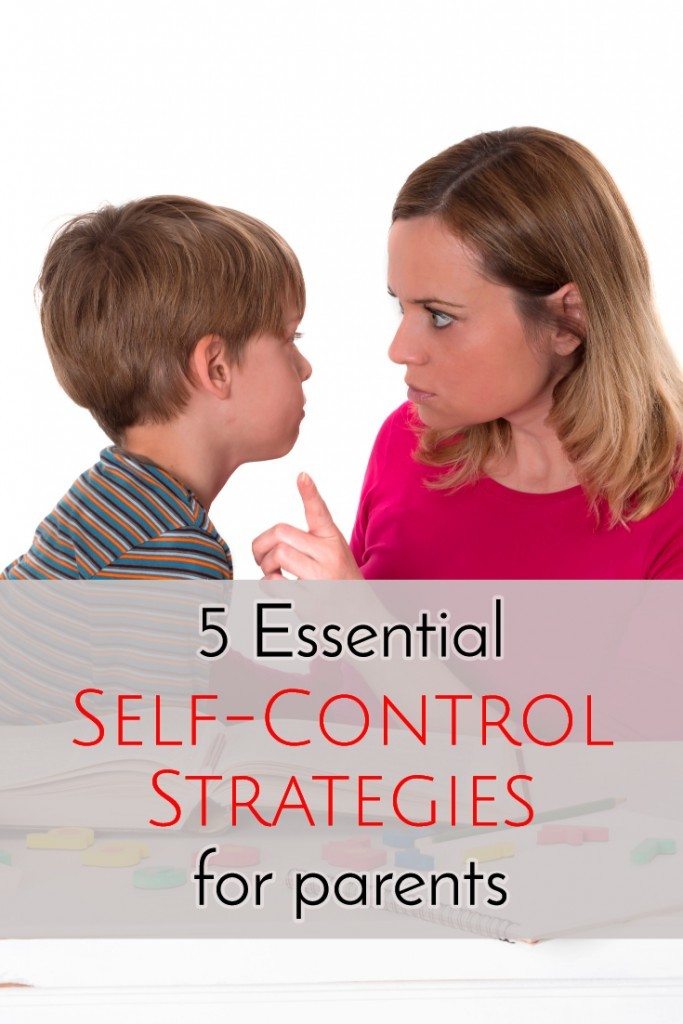
1. Speak truth to yourself.
You must fill your mind with the truth of God's Word. Your actions will never change until your thinking is changed.
(Romans 12:2 “And be not conformed to this world: but be ye transformed by the renewing of your mind, that ye may prove what is that good, and acceptable, and perfect, will of God.“)
2. Pray
As soon as you feel the frustration arising, you ought to begin to pray. You cannot control yourself. Self-control is actually allowing yourself to be controlled by the Holy Spirit. Pray and yield yourself to him, asking for the strength to control yourself even though you feel angry.
3. Deep breathing
Deep, steady breaths will help slow down your heart rate and calm your nerves. You need to calm your body down or the pressure may cause you to explode at your children.
4. Listen to music
Soft, soothing music will also help to slow down your heart rate and calm your nerves. Also, if you are listening to music that is filled with truths from God's Word, you are doubling up 2 strategies in one!
5. Remove yourself from the situation
It's pretty much impossible to feel calm when you're standing in the middle of a big mess your child has made. Don't say a word until you have left “the crime scene” or you might say something you don't really mean.
(Proverbs 29:11 “A fool uttereth all his mind: but a wise man keepeth it in till afterwards.”)
Don't wait until you feel angry to figure out how to react because you can pretty much be assured that it won't be the right way. Make your plans ahead of time so you won't be taken by surprise. You'll be glad you did.

This post is part of the Parenting with Gentleness series.
3 Practical Places to Find Balance as a Christian Parent
A sad observation I have made is that most parents tend to fall out of balance in one direction or another. (And I'm definitely including myself in that observation.) Balance is something we all need to strive for as parents. Either we aim for gentleness and end up being too permissive or else we fear being too permissive and unintentionally end up as too harsh.
But we cannot concentrate so much on one side of the spectrum that we completely neglect the other.
We must constantly be praying and asking God to show us where we are too far from the center.
Parenting with gentleness need not be our exclusive focus. But neither should “laying down the law”.
A balanced middle ground out to be what we are aiming for.
And if we are truly seeking it and asking for God's wisdom to find it, I believe he will answer and make the way plain for us.
James 1:5 “If any of you lack wisdom, let him ask of God, that giveth to all men liberally, and upbraideth not; and it shall be given him.”
Here are some specific places to search for wisdom:

1. The Bible
I mentioned in yesterday's post that a great study for parents would be to pick up a concordance and search out words such as “child”, “children”, “mother”, etc. and see what scripture has to say specifically regarding the parent-child relationship. There is no greater place to find God's wisdom than in his revealed Word.
2. Books about parenting that are based on the Bible
Sometimes you will find that an author has a different perspective than you do or that they can offer ideas you've never thought of. If the book is scripturally based, I think that gaining insight from Godly authors is a wise idea. You can find a list of my favorite Biblical parenting books right here.
3. Others who know you and your children
Don't be too proud to go to someone you look up to as a parent and ask them for advice. This could be anyone – grandparents, grown siblings, pastor or deacons, or any other Christian parents you know. If they have a lot of opportunities to interact with your family, that's even better because they may be able to see things about your parenting that you can't see from your perspective. It's a humbling thing to listen to someone else's perception of your parenting, whether you've asked or (especially if) it comes as unsolicited advice. But it is wise to listen and consider whether what they're saying is truly an area where you're out of balance as a parent. The Bible has a lot to say about the positive results of humility, and that certainly applies to our parenting as well.
James 4:6 “…God resisteth the proud, but giveth grace unto the humble.”
Proverbs 22:4 “By humility and the fear of the Lord are riches, and honour, and life.”
James 4:10 “Humble yourselves in the sight of the Lord, and he shall lift you up.”
Be willing to humble yourself before the Lord – seek his wisdom and acknowledge the areas where you fall short. You will find that He surely will answer your request to learn how to become more balanced in your parenting.
This post is part of the Parenting with Gentleness series.
The First Step to Becoming the Parent God Wants You to Be
As we begin our series on Parenting with Gentleness, we must establish right away what the basis of our study is.
I can tell you all day long how to parent your children, but all I would be doing is offering my own opinions.
Instead we must turn to the wisdom of the Bible.
Not only does God's Word establish our authority over our children, but we must allow the Bible to have authority over our own actions.
We can't pick and choose which parts of the Bible are worth obeying. We can teach our children that God says to “obey your parents”, but that's quite hypocritical if we're not willing to obey God's word ourselves, especially as it relates to our relationship with our children.
Parenting is about so much more than simply teaching our children to obey us.
Parenting is about teaching our children to obey God. And there is no better way to do that than through our example.
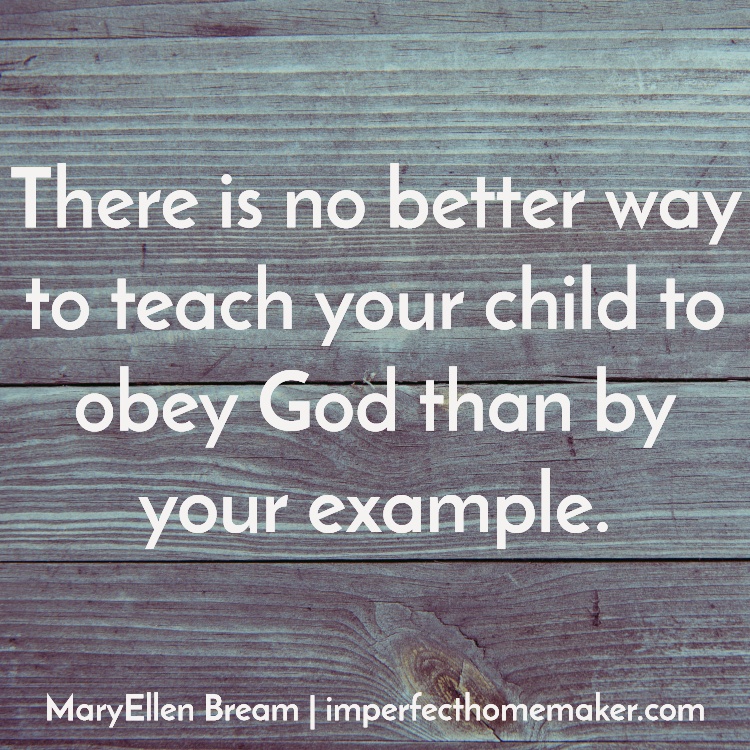
So what are some of the things the Bible teaches us in regard to parenting?
Well, most of us are probably familiar with the common verses that talk about the parent-child relationship, such as:
Proverbs 22:6 Train up a child in the way he should go: and when he is old, he will not depart from it.
and
Ephesians 6:1 Children, obey your children in the Lord, for this is right.
If you're not familiar with what Scripture has to say about parents and children, (and even if you are!) I encourage you to do your own study about what God specifically teaches regarding parents and children. Set aside the parenting books for now, and just look solely to scripture and let God speak to your heart about his plan for your relationship to your child. Grab a concordance and look up words such as “children”, “child”, “mother”, etc. and you will find enough material to keep you busy for a good while.
But, for the purpose of this particular series, I want to move away for the most part from the typical parent-child verses and turn our attention to the remainder of Scripture.
You see, if we think about the first couple of verses that come to mind regarding parents and children, what are they likely to be about?
Children needing to obey. Parents needing to train their children.
Am I right?
Those are Biblical concepts, and we certainly have a responsibility to train our children and our children have a responsibility to obey their parents.
However, if we focus entirely on turning out obedient children, we are overlooking a great deal of other things that Scripture has to teach us.
What about:
Ephesians 4:32 And be ye kind one to another, tenderhearted, forgiving one another, even as God for Christ's sake hath forgiven you.
OR
Galatians 5:22-23 But the fruit of the Spirit is love, joy, peace, longsuffering, gentleness, goodness, faith, meekness, temperance: against such there is no law.
Are we only to act with kindness toward other adults or toward children who aren't our own? What about love or patience or gentleness?
I'm afraid that too often we say, “Yes, I need to practice kindness. Or, “Gentleness is an area in which I should be more submissive to the Holy Spirit.” But we forget that we can and should practice those things beginning at home with our own families!

We are so focused on making sure our children obey that we forget that the rest of Scripture ought to have the authority over our interactions with them as well.
So today, parents, I ask you – is the Word of God truly your authority in how you parent your children? Do you seek out all of what it says and not just the well-known parts about teaching children to obey?
Biblical authority must be the first step in the journey to becoming the parents God wants us to be.
This post is part of the Parenting with Gentleness series.
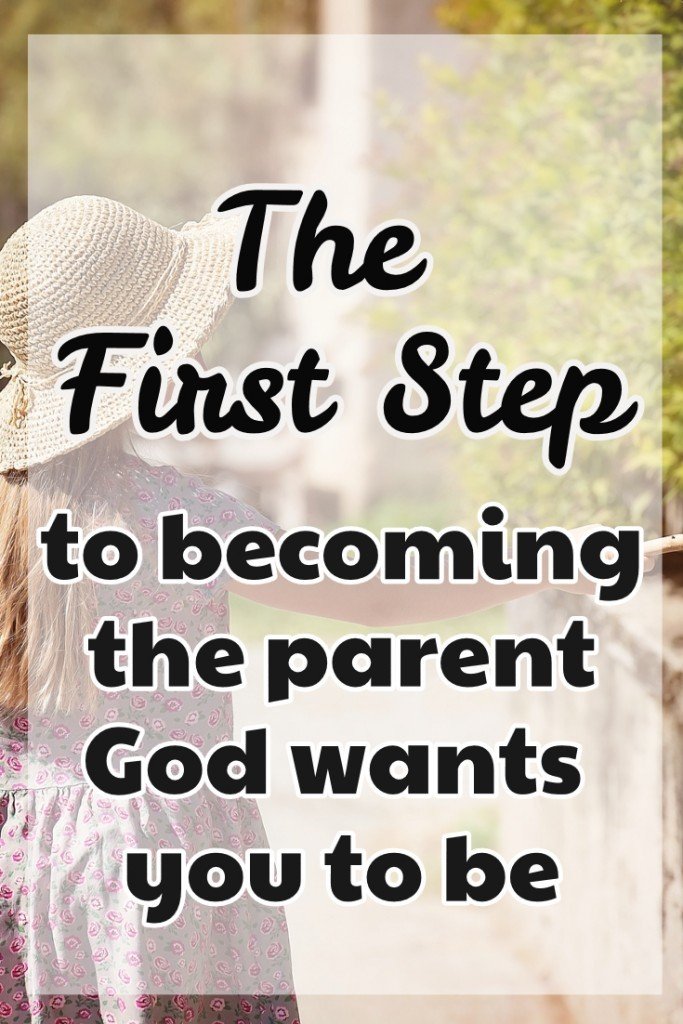
31 Days of Parenting with Gentleness
I am so exited about this 31 Day Series on Parenting with Gentleness!

UPDATE: This series has ended. Please join my email list to keep up with my latest posts on parenting and homemaking, plus receive access to my library of free printables.
This topic has been on my heart because, while I want to be a Godly mother, I have such a long way to go!
My tendency is to err on the side of being too strict, but when I read books or articles about what is typically called “Grace Based Parenting”, I often come away with the impression that all is grace and there is no room for reasonable consequences.
My goal is to find a balanced middle ground – not harsh, law-based parenting, but not permissive, “whatever-goes-because-we-all-mess-up” parenting either.
My desire is to parent with gentleness, whether that means I am extending mercy or whether I find it necessary to mete out appropriate consequences.
Join me for the next 31 days as we discuss what it means to parent with gentleness, why we should do so, and as we explore some practical ideas for becoming more gentle with our children.



